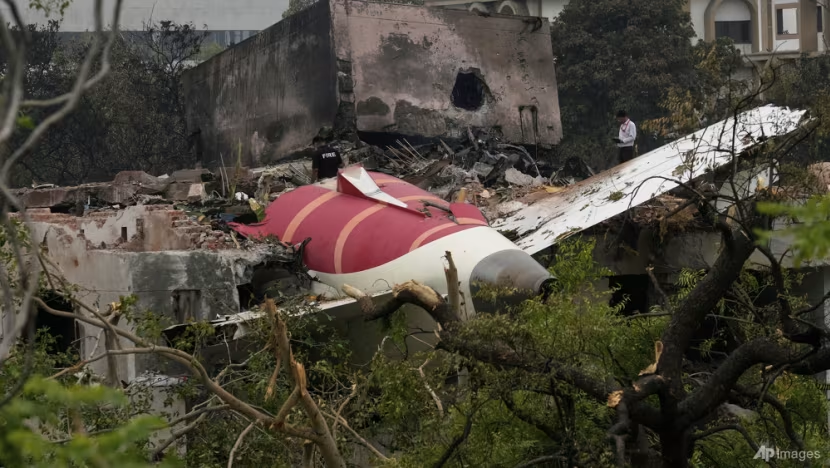The case for Iran’s nuclear program, in today’s fast evolving world, the question of nuclear weapons is one of the most sensitive and controversial in international relations.
A common understanding exists among nations that nuclear weapons should be limited, if not totally abolished.
To this end, several international treaties have been signed to discourage the rapid development and spread of nuclear arms.
Chief among them are the Non-Proliferation Treaty (NPT), the Strategic Arms Limitation Treaty (SALT), as well as the Comprehensive Test Ban Treaty (CTBT).
These treaties aim to reduce global risks, limit military aggression, and promote peace and safety.
Against this backdrop, Iran’s nuclear ambitions have raised alarm across the globe.
From a legal standpoint, Iran’s pursuit of a nuclear weapons programme is considered unacceptable under international law.
The country is a signatory to the NPT, which prohibits it from developing nuclear arms while allowing peaceful nuclear energy development under strict supervision.
However, Iran’s actual intentions have been widely questioned, particularly by the United States and its allies.
The Double Standard in Nuclear Politics
One cannot ignore the fact that global nuclear policy often appears to be shaped by double standards.
The same nations that push for non proliferation are themselves in possession of vast nuclear arsenals.
The United States, United Kingdom, France, Russia, and China all possess nuclear weapons and maintain stockpiles as part of their military strategy.
They justify this by citing reasons such as deterrence and maintaining global balance.
Iran sees this as deeply hypocritical; why should some nations be trusted with nuclear arms while others are not? Why is the West allowed to possess and even modernise its nuclear forces while the same capability is denied to others? These questions form the core of Iran’s argument.
The country believes that the international nuclear system is unfair and biased, and that its own nuclear ambitions are a form of resistance and self-preservation in a hostile world.
Why Is the United States Concerned About Iran?
The anxiety surrounding Iran’s nuclear programme is particularly strong in the United States. But what is really behind this concern…….?
.
Protecting Israel’s Regional Dominance
Iran is a significant player in the Middle East, a region already known for its political complexity and historical tensions.
Over the past two decades, Iran has grown more assertive in its foreign policy and military reach, supporting allies and proxies across the region.
This growth threatens the position of Israel, a close US ally, which sees itself as the rightful leader and stabilising force in the entire region.
If Iran were to become a nuclear-armed state, it would be in a position to challenge Israel’s military superiority.
Such a development could trigger a regional arms race, with other countries like Saudi Arabia potentially seeking their own nuclear weapons.
The United States wants to prevent any shift in the balance of power that could weaken Israel’s strategic edge.
Preventing Iran from Gaining Military Equality
In international affairs, military power remains a key source of influence. Nuclear weapons, despite their destructive power, also serve as a shield, a deterrent resources that ensures a country cannot be easily threatened or invaded.
The concept of Mutually Assured Destruction (MAD) keeps “nuclear-armed” nations from engaging in direct conflict with one another.
The fear in Washington is simple: once Iran joins the so-called nuclear club, it would gain new leverage and bargaining power on the world stage.
It would no longer be a country that can be easily isolated or threatened. It would be a military equal, something that neither the US nor Israel is willing to accept.
Will Iran Abandon Its Nuclear Programme?
The answer appears to be and for understandable reasons. Iran has already shown a willingness to cooperate in the past.
In 2015, under the leadership of President Barack Obama and in coordination with the UK, France, China, Russia, Germany and the European Union, Iran signed the Joint Comprehensive Plan of Action (JCPOA).
This agreement significantly curbed Iran’s nuclear activities. It limited uranium enrichment to 3.67%, well below weapons-grade levels.
It also reduced Iran’s stockpile of enriched uranium by 98%, and opened the country’s nuclear facilities to round-the-clock inspections by the International Atomic Energy Agency (IAEA). For a moment, it seemed like diplomacy had triumphed.
However, the situation took a sharp turn in 2018 when then-US President Donald Trump unilaterally withdrew from the agreement, calling it a “bad deal.”
The decision was made without a viable alternative, and it sent a clear signal to Iran: Western agreements could not be trusted.
In response, Iran gradually stepped back from its JCPOA commitments, resuming and accelerating its nuclear launch.
Iran’s Motivation: “Deterrence, Self-Respect, and Security”
Iran today is more determined than ever to continue its nuclear pursuits. Several factors are driving this:
Deterrence:
Self-Respect
National Security
The recent acts of aggression from Israel, including covert operations and suspected sabotage of Iranian facilities, have further hardened Iran’s resolve.
In a world where power often dictates policy, Iran sees nuclear weapons not just as a weapon, but as a shield.
Conclusion:
The future of Iran’s nuclear programme remains uncertain; what is clear, however, is that current international efforts have failed to build long-term trust.
While legal frameworks like the NPT aim to prevent the spread of nuclear weapons, they often fall short when politics and power dynamics come into play.
Unless there is a fairer and more balanced approach to nuclear policy, such one that addresses not only the ambitions of countries like Iran but also the hypocrisy of existing nuclear powers, this issue will continue to fester.
Iran may not be “supposed” to pursue a nuclear programme under current international rules, but its reasons for doing so are rooted in realpolitik, self defence, and historical grievance.




















































































